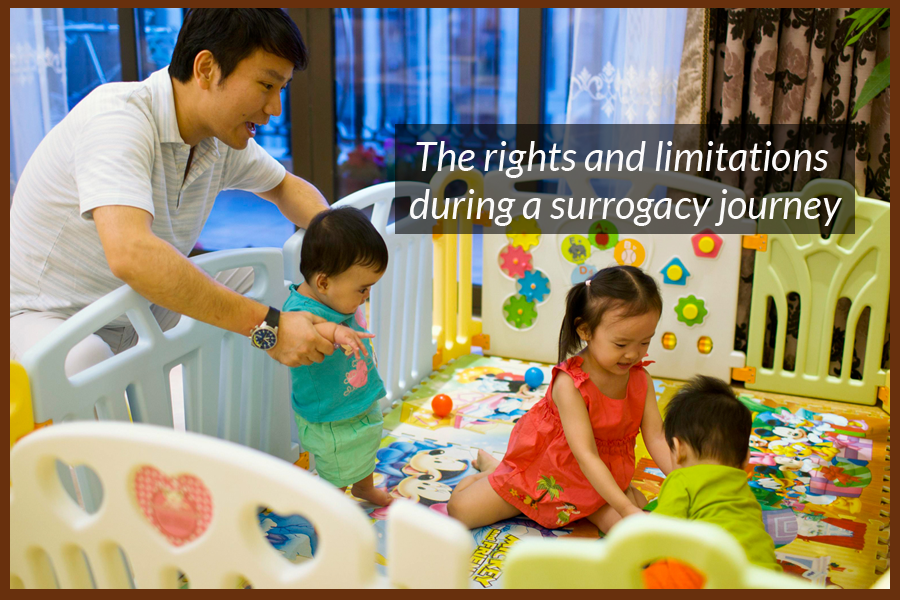Surrogacy is surely a beautiful experience that brings that most awaited happiness and bliss in someone’s life. Even though it is a journey filled with hope and fulfilment, there is always the possibility of dispute, just like with any complicated emotional and medical process.
Differences in expectations between the intended parents and the surrogate, or disagreements regarding specifics of the surrogacy agreement, may give rise to disputes. Also, it’s imperative that all parties concerned, particularly the intended parents, know how to resolve these disputes. This post provides thorough instructions on managing disputes during a surrogacy process that may arise during the surrogacy procedure.
Managing disputes during a surrogacy process
1. Keep up clarity with your communication
Proper communication can easily resolve lots of disputes and concerns without any hassle. In simple words, avoiding conflicts in the first place is the best way to resolve them. That said, open channels of communication should be established from the outset of your surrogacy journey. Ensure that everyone is aware of each other’s boundaries, fears, and expectations. Frequent updates and check-ins can support the preservation of this clarity and help avert misconceptions that could spark conflict.
You can talk with the surrogate mother or even the agency to maintain this clarity of communication at every step of your surrogacy journey. Moreover, you can ask them to come up with any concerns or challenges that they may have during the surrogacy process.

2. Create a proper surrogacy contract
There is every chance that a party may back out or deny obliging to the discussion you had earlier. This is where a proper surrogacy contract is necessary. Moreover, the surrogate’s pay, pregnancy-related costs, the plan of action for various pregnancy outcomes, and expectations for other things (such as food, activities, and doctor appointments) during pregnancy should all be covered in this contract. Also, to guarantee that everyone is aware of their rights and responsibilities make sure the agreement has been reviewed and approved by all parties.
3. Make Use of Mediation Services
You cannot deny the occurrence of certain disputes that may go out of hand at times. Even with the best precautions, conflicts can occasionally still occur. In these situations, think about employing a professional mediator. You can hire a third-party mediator or many surrogacy agencies offer mediation as part of their package. Through mediation, all parties can voice their concerns and work towards a win-win resolution in an impartial forum.
Even though it may not resolve the dispute completely, it will help you to reach to a mutual agreement with the other party easily.
4. Always maintain respect and compassion
Do know that respecting others can make them respect you in return. That said, conflicts should always be approached with empathy and respect. Also, keep in mind that the surrogate is assuming a heavy emotional and physical burden. Acknowledge the sacrifices she has made and treat any discussions regarding disagreements with respect for her contribution. Likewise, be aware that intended parents frequently have a financial and emotional stake in the procedure, which can be stressful. This is where an amicable resolution to disputes can be achieved through mutual respect and empathy.
5. Pay proper attention to the procedure
Staying attentive to the procedure and every aspect related to it can help you negate a lot of issues and concerns. That said, listening is just as important as talking when it comes to effective communication. When there is disagreement, be sure to actively hear the surrogate’s worries. This entails paying attention to what she says as well as attempting to decipher the feelings and motivations that underlie it. Tensions can be reduced and constructive solutions can be established with the aid of active listening.
6. Go connect with a counselor
 The role of a counselor is not just to help you with your mental health issues. Moreover, they can also help you with certain disputes. Occasionally, the surrogacy-related emotions can become too much to handle, making handling conflicts more challenging. It can be advantageous for both the intended parents and the surrogate to receive professional counselling. Counsellors with expertise in surrogacy or reproductive issues can offer insightful advice and assist in handling the emotional aspects of these conflicts.
The role of a counselor is not just to help you with your mental health issues. Moreover, they can also help you with certain disputes. Occasionally, the surrogacy-related emotions can become too much to handle, making handling conflicts more challenging. It can be advantageous for both the intended parents and the surrogate to receive professional counselling. Counsellors with expertise in surrogacy or reproductive issues can offer insightful advice and assist in handling the emotional aspects of these conflicts.
7. Go over and revisit the surrogacy contract.
Once you draft a surrogacy agreement with the help of a legal professional, you have got half the work done in resolving any disputes. That said, examining the surrogacy agreement should be one of the first things to do in the event of a conflict. This document can serve as a guide for what was initially agreed upon and frequently includes provisions for handling disputes. All parties can avoid misunderstandings and be reminded of their obligations by consulting the agreement.
8. Remain Aware of the core objective
Do know what your end goal is and keep that in your mind all along the surrogacy process. Remember the end result at all times, especially when there are disagreements: the safe delivery of a healthy child and the formation of a family. This viewpoint can lessen the emotional intensity of disagreements and direct attention towards finding solutions that put the child’s and the surrogate’s welfare first.
9. Be Adaptable and willing to make changes
Change is always good if it is happening in the common interests of everyone. That said, more cordiality and a readiness to make changes can help to settle disputes more amicably. Moreover, the surrogacy agreement should be respected, but it should also allow for changes as needed, as long as they don’t jeopardise anyone’s rights or welfare. Finding an agreement that pleases everyone can be facilitated by having an open and adaptable mindset.
10. Always record any settlement
Keeping a record of any procedure to settle the dispute always helps. After a dispute has been settled, record the decision and the actions that all sides agreed upon. This can help avoid disagreements in the future and guarantee that there is a clear point of reference in case the same problems come up again. Additionally, documentation fosters greater openness and confidence amongst all parties.
Final words
Disputes are the part and parcel of any surrogacy process and the intended parents must stay ready for that. That said, throughout the surrogacy process, managing conflicts calls for tolerance, understanding, and open communication. Intended parents can successfully navigate these challenges by laying strong foundations, keeping lines of communication open and courteous, and seeking professional assistance when needed.
Recall that the ultimate goal is to guarantee a happy experience for all parties involved, culminating in the joyful birth of a new life. Do know that conflicts can be resolved in ways that improve relationships and reinforce the shared commitment to this special and life-changing experience when approached correctly.


No Comments